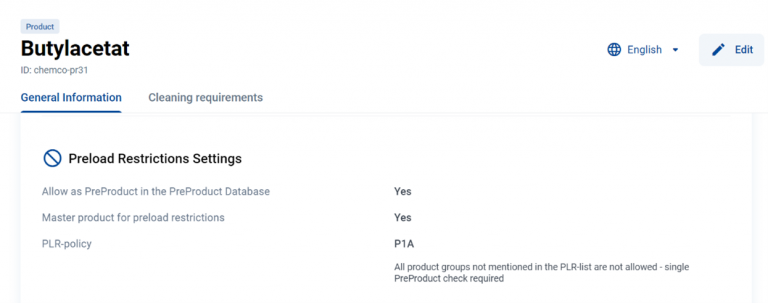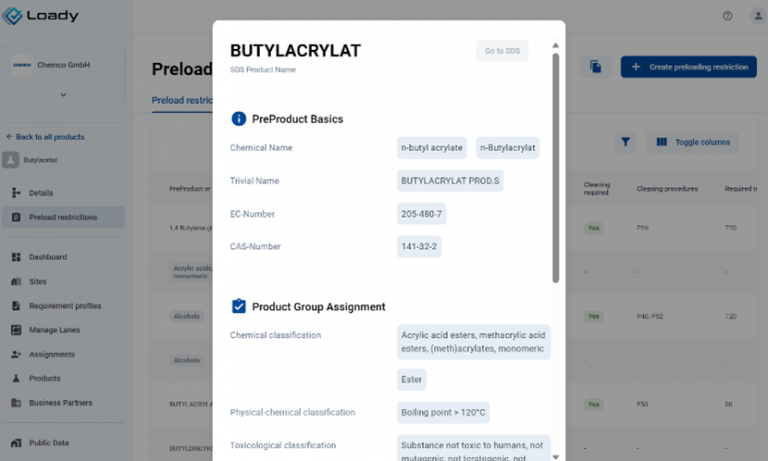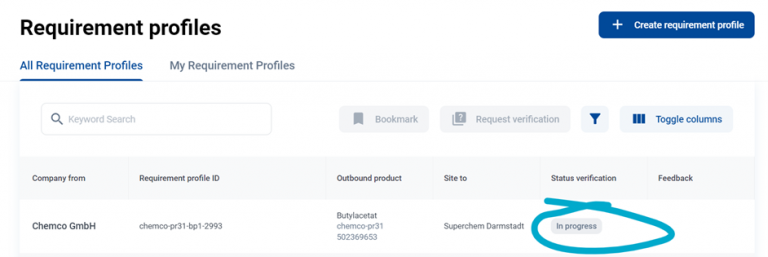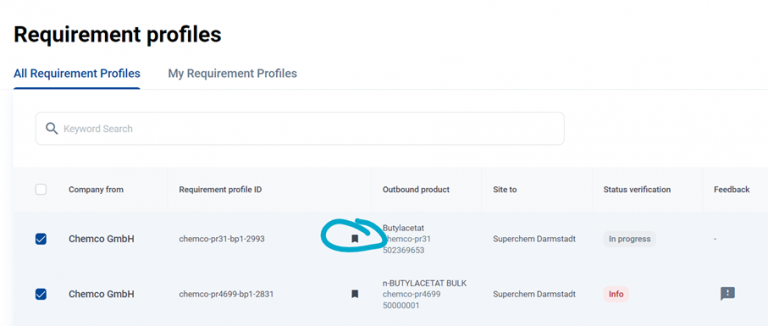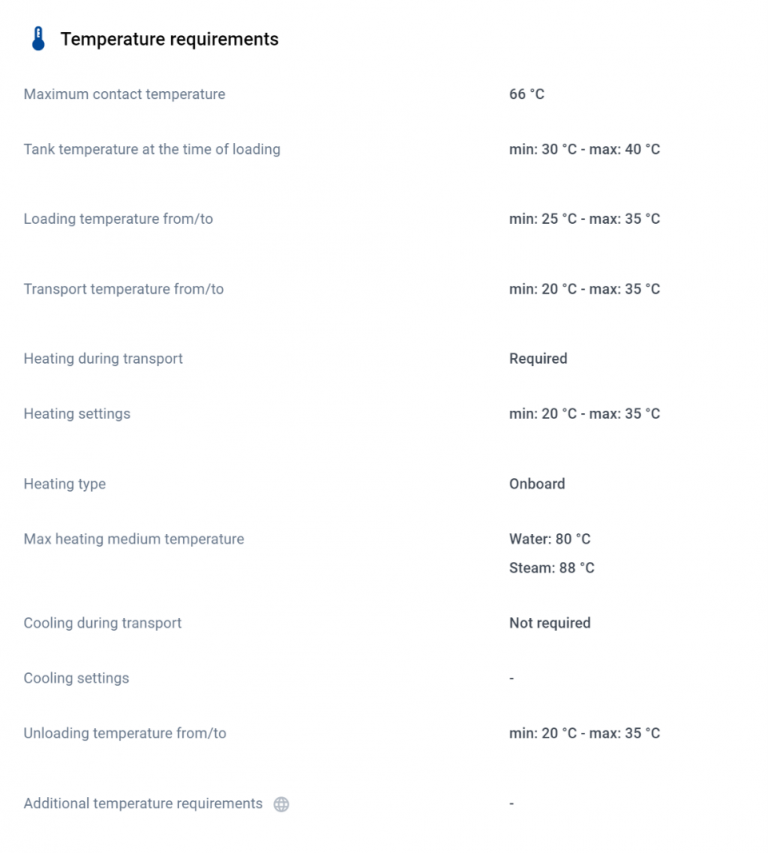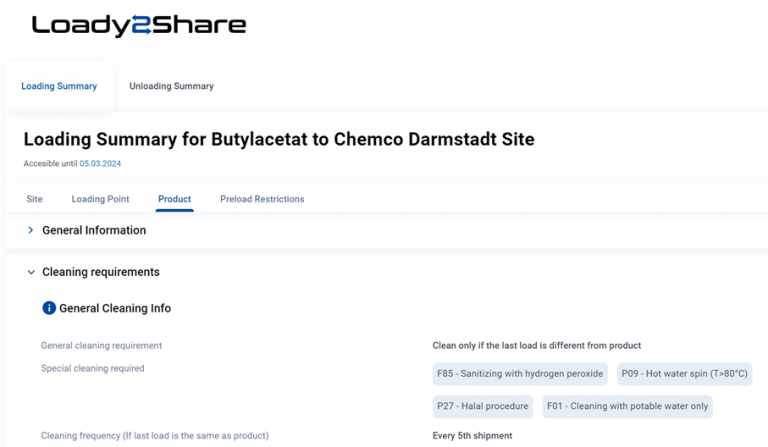Release 02.2024 – Learn more about ePLR, Loady4Tender, Loady2Share
Fascinating new features for freight procurement, integration with ERP & TMS, and automated pre-checks at gates.
Overview of all Loady updates - 02.2024.
1. CSV import of loading and unloading points
After Products and Business Partners now also Loading and Unloading Points can be uploaded quickly and easily via our CSV data import. This enables efficient and time-saving creation of new loading and unloading points and migration from other systems to Loady.
2. Changes in Previous Load Restrictions
The user-friendliness of the previous load restrictions (PLR) feature have been improved.
- Previous Loading Restrictions (PLR) master
The PLR master function offers a new option for transferring the previous load restrictions of a product to other products. If you are using a PLR master, the selected product will have the same restrictions as the product master. The previous load restrictions are synchronised, making it easier to maintain previous load restrictions.
- PreProduct database
Loady now offers access to a PreProduct database. A search function allows to find PreProducts within the Loady database. These PreProducts can be searched by name, trivial name or CAS number, for example. You can also quickly and easily add them to the list of previous load restrictions for a product. It is also possible to customise the PreProducts before adding them to the PLR list of one product.
- PreProducts
In Loady, PreProducts contain significantly less information than products. However, the chemical and danagerous goods related information maintained in a PreProduct is essential for the creation and maintenance of a high-quality previous load restriction list. Chemical names and trivial names can be added in various languages and found using the search function. In addition, the corresponding safety data sheet for the PreProducts can be linked. PreProducts in the previous load restrictions thus allow a quick overview of all relevant information about a PreProduct.
- New User Role: Product manager
In the user administration of a company, the newly introduced role of product manager can now be assigned to those responsible for products and previous load restrictions. This customised role authorises those responsible to adjust product-specific data and maintain previous load restrictions. The new PreProduct feature can also be used via this role.
3. Changes to the requirement profiles
Loady has made a number of changes to the requirement profiles in order to improve the user experience.
- Revision of the feedback function
With one click, the reviewer is taken directly to the right place within Loady to enter their feedback.
- New status: In progress
The introduction of the new status In progress increases the transparency of the processing status during a verification request for the requester. This status is set automatically as soon as the reviewer starts working on the request.
- Email reminder
An automatic reminder email will be sent to the reviewer and the requester after 2 weeks.
- Notifications
All persons involved in the process of a verification request are informed of the progress and updates via notifications on the Loady dashboard and by email. This minimises the risk of the verification process being delayed or individual requests being overlooked.
- Bookmarks function
To optimise the clarity and handling of multiple requirement profiles, Loady now allows you to set bookmarks. This means that individual requirement profiles can be added to your own bookmark list and managed as required.
4. Data modules enhancements
Loady has made a number of changes to the modules and submodules in order to improve the user experience.
- Filters
Filtering options are now built into most lists (e.g. products, locations). This means that the lists can be filtered according to specific criteria or objects.
- Temperature requirements
The Temperature Requirements submodule (Technical Requirements – Assigned Products module) has been substantially modified. A large number of new temperature-relevant attributes related to the product and its transport can now be stored.
- Authorisation groups
A product can be assigned to an authorisation group using the new authorisation group input field (module: General information – product). The authorisation groups can be individually designed, e.g. according to the responsibility of one person for several products. This enables better management of the products and efficient contact with the people responsible.
- Improved search function
The search function in Loady has been improved by implementing an optimised algorithm. Among other things, special characters are now taken into account in the search.
5. Loady4Tender
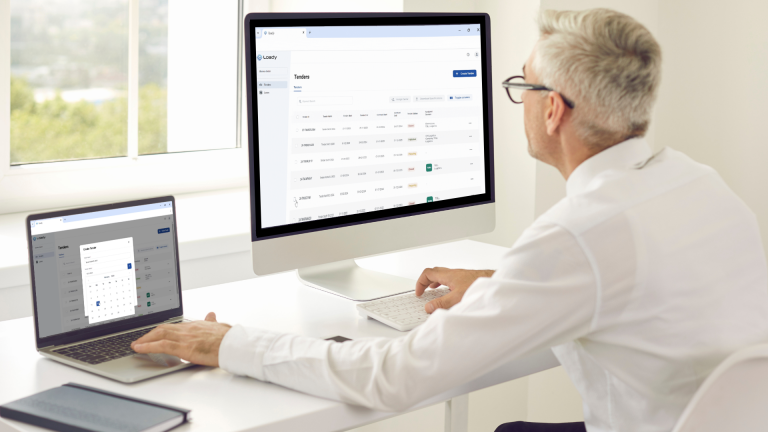
Loady4Tender is a new feature that optimises and supports the freight tender process for truck transport services. A tender can be easily created by adding previously created lanes. Relevant logistics service providers can be assigned to specific tenders. This gives them access to transport relevant information for the period of the tender. The new feature can be used with the specially created Tender Manager role.
- CSV upload
To create tenders and associated lanes quickly and easily, the relevant information can be uploaded to Loady via CSV file. The system automatically detects if the information specified in the CSV file is available in Loady.
- Download specifications
When a logistics service provider is assigned to a tender by a company, the specifications relevant to the tender can be downloaded as a CSV file.
- Archived tender lanes
At the end of the tendering phase, a tender is closed in Loady. The lanes it contains are not deleted, but archived. This allows companies to access, analyse and compare historical data for new tenders.
6. Loady2Share
The information maintained in one lane can be easily shared with others via a link using the new Loady2Share feature. This means that all the companies a user wishes to share data with can access all the information in a lane free of charge, quickly and without registration or login. The responsible users decide with whom to share the Loady2Share link and information for a specific lane. The validity of the link can be set variably by the user.
7. Public-API
The first public APIs have been successfully implemented. Data can be easily exchanged between Loady and the customers’ ERP systems.
The following APIs are currently available in Loady:
- Create/Update Business Partners
- Create/Update Products
- Create Loady2Go link
- Create Loady2Share link
- Get logistics requirements for freight order
- Update customer’s unloading hours

